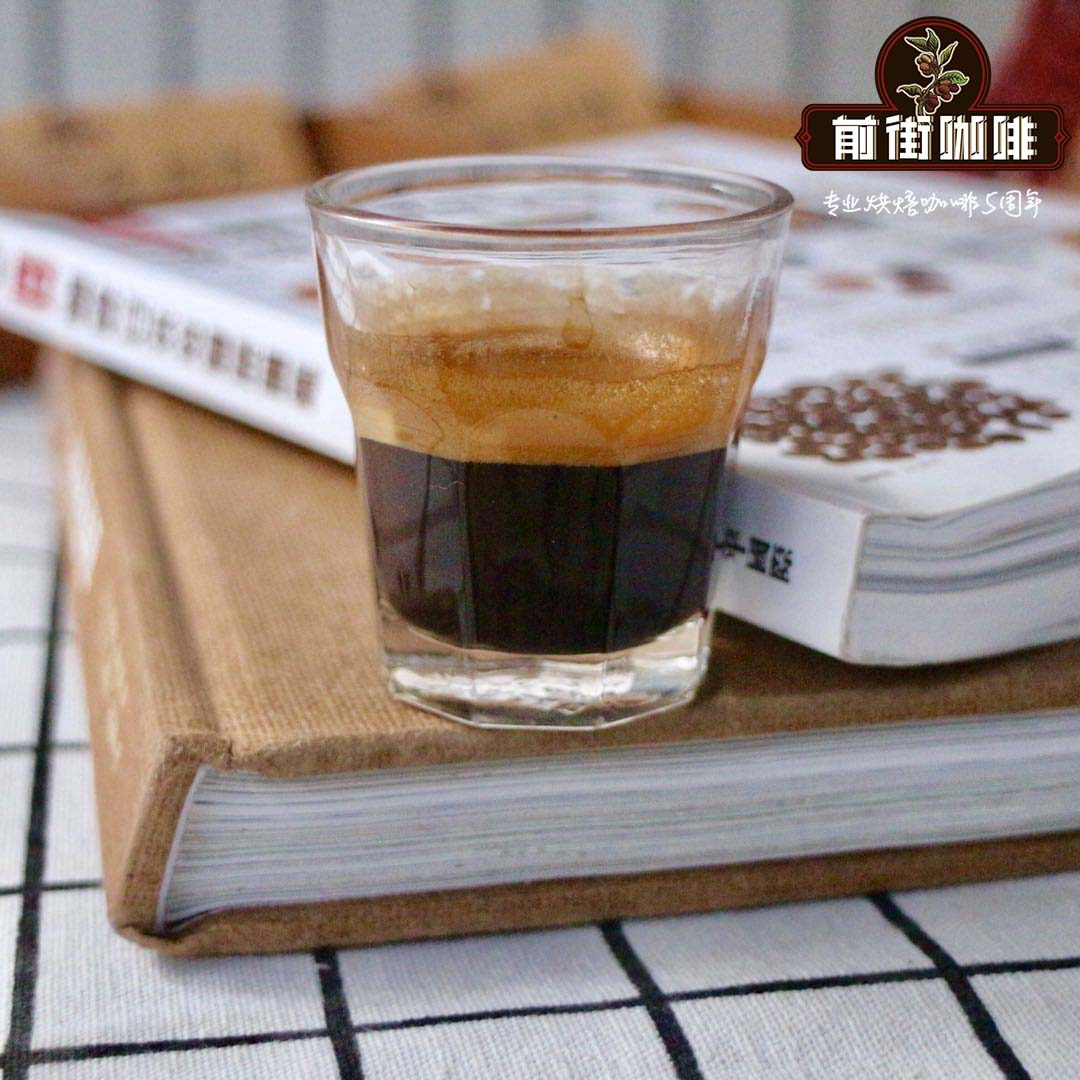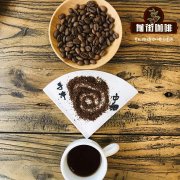What about the bitterness of coffee? the flavor of coffee is not just how to drink it.

Professional coffee knowledge exchange more coffee bean information please follow the coffee workshop (Wechat official account cafe_style)
Most people have a fixed impression of coffee: bitter.
Bitter coffee ah bitter coffee, why do you choose bitter coffee instead of sweet milk tea?
The answer is simple: good boutique coffee is hardly bitter.
This runs counter to the public's impression of coffee, not to mention black coffee without sugar and milk, and even ordinary Italian coffee such as Cabo, latte and even three-in-one instant coffee are somewhat bitter. How can we say that fine coffee is not bitter?
First of all, we must understand the source of bitterness:
one
Overbaking: carbonization
In the process of coffee roasting, the high temperature is used to caramel the starch in the coffee beans, thus bringing out the sweetness and mellow feeling. Whether it is shallow baking, medium baking, deep baking, etc., the process of caramelization is inevitable, but the different heating degree and time lead to different sweetness.
If the caramel temperature is too high or the time is too long, it will scorch and produce bitterness. This phenomenon is called carbonization. Like sugar glued to the surface of a pot, overheating the sweetness will turn into a distinct bitter taste.
Epidermal carbonization is the main source of bitterness.
Does that mean that deep baking is bound to have a bitter taste? Not necessarily, it can only be said that there is a greater chance of bitterness.
Imagine stir-frying the granulated sugar in an iron pan. If you fire or fire for a long time, the sugar is really more likely to burn.
However, if combined with rapid stir-frying, so that the sugar is evenly heated, it may not produce bitter taste.
But even if the fire is low or the time is short, the sugar near the bottom of the pot will be carbonized to produce bitterness if it is not taken care of.
It can be seen that bitterness is definitely not a patent for deep baking. As long as the roasting process is uneven, the surface of the coffee can easily receive too much heat, making the skin carbonized, and it will naturally produce bitterness.
In order to increase the sweetness of coffee and cover up the obvious flavor defects of defective beans, most non-boutique coffee is often treated by deep roasting. Coupled with the often careless care in the process of baking, many coffee beans are often charred, resulting in bitterness.
Excessive caramelization during baking will produce a bitter taste.
Unfortunately, bitterness itself is particularly evident in the taste system, so even espresso and three-in-one coffee with a lot of sugar milk are likely to make people aware of bitterness.
Not to mention that most of the traditional black coffee was roasted deeply, and there was a lack of concept in roasting at that time, which led to the unawareness of the carbonization of the skin and made people drink bitter coffee for more than ten years. This is really a strange situation that is inexplicably accepted by the world.
two
Bitterness of chlorogenic acid conversion
The first point refers to the bitter taste caused by carbonization, basically nothing to say, is a very bad bitter taste, people frown.
But just as acid has two sides, bitterness has another possibility that is more acceptable and even adds to the complexity of coffee flavor, and this good bitterness generally comes from chlorogenic acid.
Chlorogenic acid is one of the sources of sour taste in coffee beans, and chlorogenic acid in the baking process, after heating will first be converted to chlorogenic acid lactone, with a weak and mild bitter taste.
Like coffee, cocoa contains chlorogenic acid
The chocolate was slightly bitter and tasty when baked at that time.
So excluding the bad bitterness caused by carbonization, the beans baked below may also have a little bitterness, but it is not obvious, and because it is contained in the complex flavor of acidity and sweetness, it is often not particularly prominent.
And this weak bitter taste, in the rich taste, sweet and sour boutique coffee, can reduce the sweet and greasy feeling of beans, keep the mouth fresh, and even strengthen the effect of sweetness and complexity in the final rhyme.
But this bitter taste must not be exceeded, otherwise it will be another disaster, directly overriding the sweet and sour taste, then putting the cart before the horse and killing the good taste.
Deep baking more than beans, the chemical reaction continues, chlorogenic acid lactone and then converted to phenyl lindane, with a strong bitter taste, this bitterness is a bit serious.
In general, phenyllindane is produced after the second explosion, and the deep baking ends about the second explosion, so the proportion will not be too high, and it will not be particularly obvious when mixed in rich caramel sweetness.
When this bitterness is properly mastered, it may also create the impression of bitterness (sweetness, not too high bitterness).
However, if you continue to bake, pull to the second explosion, the whole bean shows a black and oily ultra-deep baking (or overweight baking), the proportion of phenyl lindane is naturally high, the bitter taste can not be avoided, it becomes bitter with sweetness, and the mouth will show an uncomfortable state, which is not a normal phenomenon.
The bitterness of ultra-deep baking will be magnified and not easy to hide.
three
Defective beans, rotten beans
When the grade of raw coffee beans is very low, the quality of coffee cherries is mixed, improper handling leads to corruption, poor storage and so on. It can also cause coffee beans to have a strange taste, showing an uncomfortable bitter taste after baking.
This generally happens in cheaper beans, and boutique coffee is generally carefully taken care of, which is relatively less likely to happen.
The destructive power of defective beans and rotten beans is amazing.
Often a bean spoils a pot of fine goods.
After understanding the bitter taste of coffee in Laiyuan, there is a natural doubt: does the bitterness I drink come from carbonation or the conversion of chlorogenic acid?
The problem is very complex and difficult to identify with the tongue alone, but fortunately it doesn't matter at all. The focus is on whether bitterness plays a comfortable or annoying role in coffee flavor.
As mentioned before, good boutique coffee is hardly bitter, to use a more precise term: good boutique coffee is not particularly aware of bitterness.
Even if chlorogenic acid is converted into chlorogenic acid lactone, or even phenyllindane, unstimulated carbonization, in the right proportion, may also increase the performance of coffee flavor.
However, the editor specially stressed that in the fine coffee market with strong acidity and delicate aroma, the above cases of using bitterness to add flavor are rare and not easy to operate, because:
1. Consumers don't think highly of the bitterness (or even hate it).
two。 Consumers who bring back their own cooking may magnify the delicate bitterness, resulting in the destruction of the whole bag of beans.
Therefore, the average store will try to avoid bitterness, after all, it is not so agreeable.
If you are lucky enough to encounter a few stores that can carefully grasp the bitter texture, you might as well try to feel the interesting taste changes brought about by the bitter taste, and you may fall in love with this bitter taste.
Finally, if the bitter taste of the coffee in front of you is strong or prominent enough to make you feel uncomfortable or strange, this is definitely not a good cup of coffee.
Don't convince yourself that coffee is bitter, and you don't have to doubt whether you are a coffee layman, so you don't understand the suffering in front of you. A good boutique coffee won't make you so painful, and the good taste won't be so hard.
In addition, bitterness is different from sour taste, adding water is difficult to dilute and will not become sweet, so the best way to encounter unbearable bitterness is not to drink it. After all, it is better to drink plain boiled water than bitter coffee.
Related recommendations: consciously taste coffee: the correct use of SCAA coffee flavor wheel and tips
Important Notice :
前街咖啡 FrontStreet Coffee has moved to new addredd:
FrontStreet Coffee Address: 315,Donghua East Road,GuangZhou
Tel:020 38364473
- Prev

What is the cleanliness of coffee? describe the flavor of coffee.
Professional coffee knowledge exchange more coffee bean information please pay attention to the cleanliness of the coffee workshop (Wechat official account cafe_style), which is a very important evaluation criterion for a cup of fine coffee, it is the first item that needs to be scored in the Coe cup table, we can see its importance. It can be said that when the Coe Cup test standard was introduced, cleanliness was the first important item for the bar it served.
- Next

How to Make Coffee Without Bitterness
Professional coffee knowledge exchange More coffee bean information Please pay attention to coffee workshop (Weixin Official Accounts cafe_style) Coffee bitter? So sour? When many people come into contact with coffee, bitter is strong, strong is fragrant, meet such guests we will patiently explain, coffee flavor what, strong is not necessarily fragrant, bitter is not necessarily, but for a never study coffee
Related
- Beginners will see the "Coffee pull flower" guide!
- What is the difference between ice blog purified milk and ordinary milk coffee?
- Why is the Philippines the largest producer of crops in Liberia?
- For coffee extraction, should the fine powder be retained?
- How does extracted espresso fill pressed powder? How much strength does it take to press the powder?
- How to make jasmine cold extract coffee? Is the jasmine + latte good?
- Will this little toy really make the coffee taste better? How does Lily Drip affect coffee extraction?
- Will the action of slapping the filter cup also affect coffee extraction?
- What's the difference between powder-to-water ratio and powder-to-liquid ratio?
- What is the Ethiopian local species? What does it have to do with Heirloom native species?

